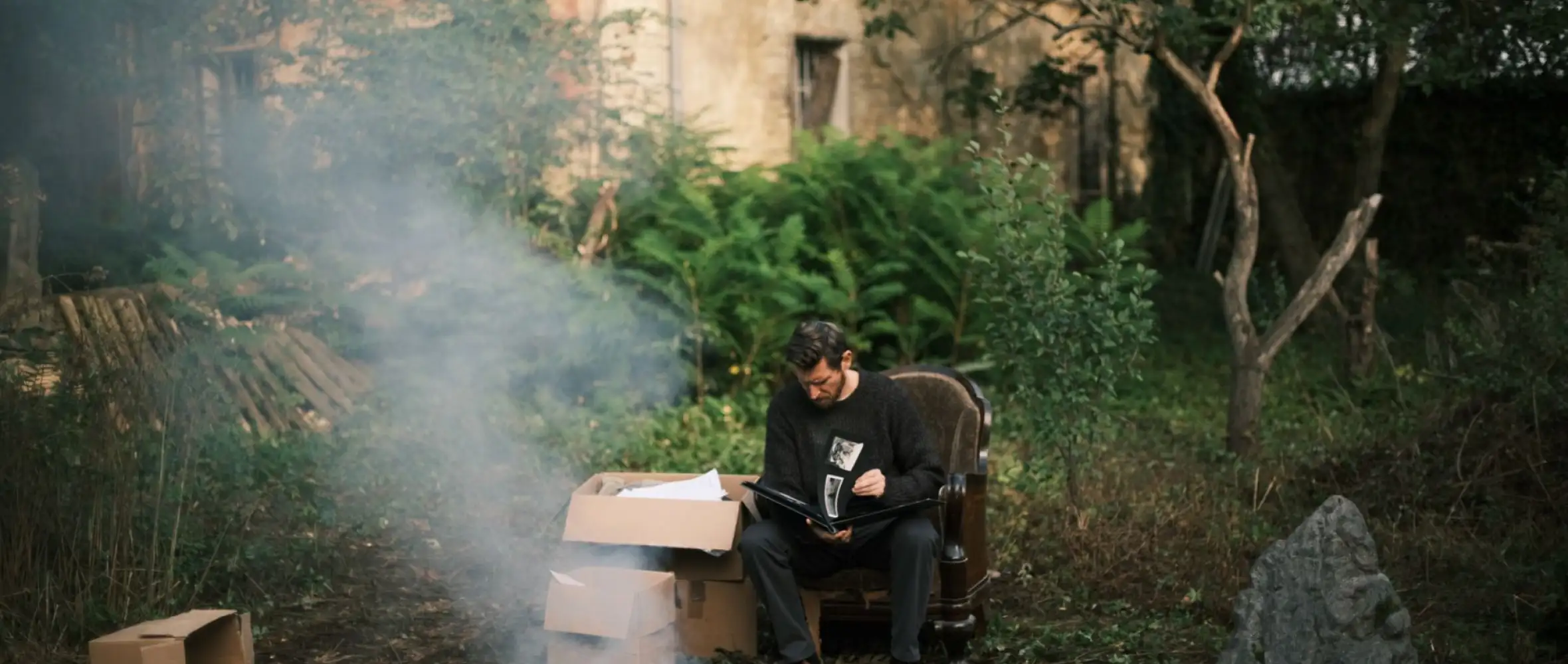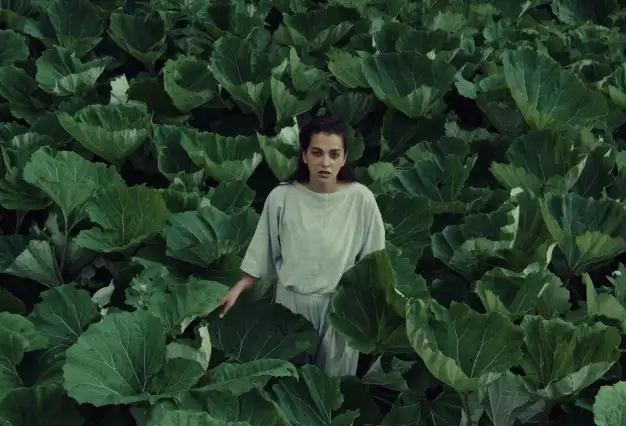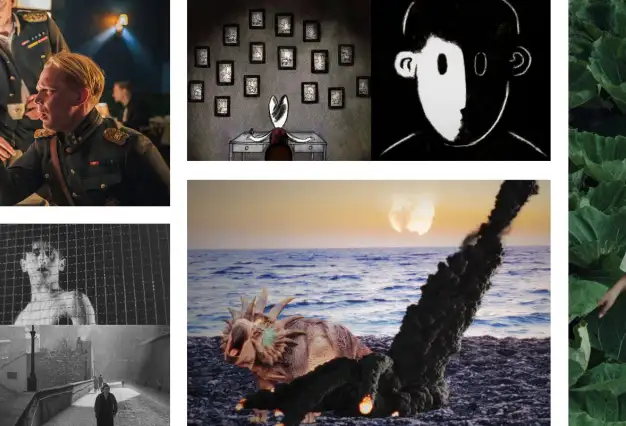
14 May 2025
Social fractures, historical echoes
Social fractures, historical echoes

Czech production company Mimesis Film has built its foundation on auteur-driven fiction while steadily developing a parallel documentary slate marked by observational approaches and human rights themes. Balancing long-term collaborations with directors such as Petr Václav and Miroslav Janek with support for debut filmmakers, producer Jan Macola has positioned the company as a space for both formally distinctive works and cross-border co-productions. Alongside its production activities, Mimesis also operates its own distribution label and independent cinema, maintaining a vertically integrated model.
by Martin Kudláč for CZECH FILM / Summer 2025
Since its founding in 2012 by producer Jan Macola, the Prague-based Mimesis Film has focused on auteur-driven storytelling shaped by international collaboration. Working across both fiction and documentary, the company supports directors with clearly defined artistic visions. This orientation has enabled Mimesis to move fluidly between genres and formats, consistently aligning with projects that prioritise narrative precision and directorial intent.
The company’s slate includes feature films, documentaries, and hybrid works that reflect a commitment to creative autonomy and sustained artistic partnerships. Rather than adhering to conventional production frameworks, Mimesis Film operates on a model grounded in long-term development and a hands-on, craft-oriented approach.
Before establishing Mimesis Film, Macola worked at Barrandov Studios, one of the Czech Republic’s storied film institutions. His role evolved to Head of Co-Productions and Development, where he oversaw international partnerships, material contributions, and financing arrangements. His decision to launch his own company grew from a desire to engage more directly with the kinds of stories he was facilitating, stories shaped less by institutional constraints and more by the creative perspectives of their authors.
The Václav factor
While working for Barrandov Studios, Macola was involved in an early initiative that would later become the Czech Film Foundation, evaluating screenplays for their co-production potential. It was during this period that he first encountered the work of Czech-born, France-based director Petr Václav. The two eventually met in person at the Armenian party at the Cannes Film Festival, where they began discussions that would lead to Mimesis Film’s most ambitious project to date, Il Boemo.
Before Il Boemo entered production in 2019, the company achieved its first major milestone with Václav’s The Way Out (2014), a social drama centred on a young Roma woman navigating systemic exclusion. The film premiered in Cannes’ ACID programme and went on to win seven Czech Film and Television Academy Awards, including Best Film.
Václav would go on to become Mimesis Film’s most frequent collaborator. Following The Way Out, Macola produced We Are Never Alone (2016), an ensemble portrait of distrust and inertia in a small Czech town. The pair then pursued The Jumper (2017), a hybrid work featuring a non-professional actor as an ex-convict on a quasi-fictional journey to the Cannes Film Festival.
Prior to the full-scale production of Il Boemo, the two worked together on the documentary Confession of the Vanished, which chronicled the staging of the opera Olimpiade while exploring the life of Josef Mysliveček, the main subject of the biographical drama Il Boemo (2022). The film marked a significant step for Mimesis Film, demonstrating its capacity to manage large-scale, international co-productions.
The more than decade-long collaboration between Václav and Macola reflects the company’s selective, director-focused ethos. Mimesis Film commits to projects it can support over the long term and to filmmakers whose perspectives align with its values. Their next joint project, Mozart in Paris, continues this trajectory. Currently in development, this historical drama written and directed by Petr Václav is scheduled to begin production in spring 2026, with a release planned for 2027.
Unlike Il Boemo, which embraced period realism, Mozart in Paris adopts a more experimental and scenically theatrical approach. Set during the lesser-known period the composer spent in Paris, the story is structured around Mozart’s correspondence with his father and unfolds through a blend of cinematic language and stylised stagecraft. The multilingual screenplay will incorporate French, German, and Italian. The project is being co-produced by French producer Patrick Sibourd (Nour Films), with anticipated German co-production involvement from Alamode Film (Munich).
Observing the margins
Alongside its fiction portfolio, Mimesis Film has developed a documentary slate characterised by an observational approach and a commitment to ethical engagement. These works often centre on individuals and communities that are underrepresented in mainstream discourse, presented through formally restrained storytelling.
Czech documentarian Miroslav Janek has contributed several titles to this body of work. Normal Autistic Film (2016) presents a candid portrait of neurodivergent children, resisting sentimental framing in favour of closer observation. Janek’s subsequent short film, Markéta Wants Her Bag (2018), is dedicated to one of the protagonists who was supposed to be in Normal Autistic Film – 16-year-old Markéta, who has Rett syndrome. Finally, the poetic essay All Ends Well (2023) is about beehives and the impact of bees on human society.
In Inside the War on ISIS (2018), photojournalist Jana Andert embedded with an Iraqi military unit during the battle for Mosul. Filmed under extreme conditions, the documentary offers unmediated footage of urban warfare, underscored by the psychological impact on combatants and civilians alike. Heaven (2021), directed by Tomáš Etzler and Adéla Špaljová, turns its focus to a semi-legal orphanage for disabled children in China.
The most recent addition to the documentary slate is David Čálek’s Doctor on a Trip (2024). The film follows a Czech psychiatrist researching the use of psychedelics in treating depression, tracing the therapeutic process from clinical trials to shamanic practices in the Amazon. The project reflects Mimesis Film’s continued interest in themes at the intersection of science, society, and personal experience.
Scaling up the pipeline
Mimesis Film continues along its established trajectory with a strong pipeline of upcoming projects. Nearing completion is Wirbel, the feature debut of Tomáš Hubáček, a mystery drama set in the Central Bohemian Highlands. Seven years in development, the film blends elements of drama, arthouse, and genre cinema. A festival premiere is anticipated in summer 2025. The project grew out of Hubáček’s experimental short Fibonacci (2020), also produced by Macola, which screened at over 50 festivals and received 13 awards.
In addition to Mozart in Paris, Mimesis is developing Father Deer, Mother Fox, a Czech-Slovak co-production written and directed by Pavel Jurda. Set in the White Carpathians, this family drama addresses generational trauma and emotional intimacy. With its focus on silence, landscape, and inner life, the work is reminiscent of the tone of contemporary Georgian cinema.
In early development is White Water, an adaptation of Kateřina Tučková’s bestselling novel, which became a domestic literary phenomenon. Set in the Czech-Polish borderlands, the story explores the hidden history of women within the Catholic Church, particularly those who operated outside state-sanctioned religious structures during the communist era. At its centre is a real-life figure, an ordained woman whose pastoral authority was later revoked after 1989. The story tackles themes of faith, gender, and ecclesiastical power through the lens of personal and collective memory.
Among the documentaries currently in production is Vltava Philharmonic, directed by Tomáš Bojar. This time-lapse documentary chronicles the prolonged and politically sensitive process of constructing Prague’s new national concert hall, a project positioned as both a cultural symbol and a milestone in contemporary public architecture in Central Europe. The film adopts a hybrid form, combining long-term observational footage with interviews, political moments, and scenes from public consultations. Completion is expected in 2027.
Macola is also continuing his long-standing collaboration with Miroslav Janek, producing his next project, The Patriots, which is currently in production. This essayistic documentary examines the evolving concept of national identity in a fragmented, post-truth Europe. Structured around an avant-garde stage adaptation of Bedřich Smetana’s My Homeland, the documentary will weave together symbolism, historical reflection, and present-day tensions. It will also feature previously unpublished excerpts from Smetana’s teenage diaries. A 2026 premiere is planned, coinciding with several anniversaries related to My Homeland and aiming for a launch on the international festival circuit.
Integrated ecosystem
While Mimesis Film remains rooted in its Czech base, its orientation is decidedly European. Many of its projects, particularly those directed by Petr Václav, are developed with French co-producers, reflecting Macola’s longstanding ties to the French market. This outward-looking perspective also extends to occasional involvement in foreign productions. Macola joined as a co-producer on America, the second feature by Israeli director Ofir Raul Graizer (The Cakemaker), and on Jan Jakub Kolski’s Polish drama Pardon.
More significantly, Mimesis has grown into a vertically integrated venture. In addition to production, it handles distribution through its in-house label, Pilot Film, and maintains its own exhibition platform, Kino Pilotů, an independent cinema in Prague founded by Macola and curated by his wife. Since opening, Kino Pilotů has become one of the most frequented independent cinemas in the Czech Republic, drawing more than 100,000 viewers annually despite its modest size. This in-house venue offers Mimesis Film productions, as well as other curated works, a longer theatrical life and direct access to a dedicated audience.
Pilot Film, meanwhile, has expanded beyond Mimesis’s own titles to distribute a carefully selected catalogue of international films. This extension of activities enables the company to engage with cinema across its full life cycle, from early development to exhibition, while supporting a broader network of independent filmmakers and projects that align with its curatorial taste.




